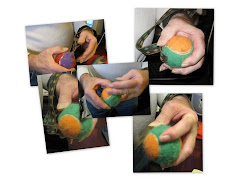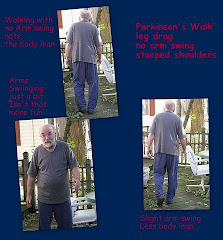In their clinical review The Journey Mary G Baker and Lizzie Graham use the analogy of the diagnosis of a disease such as Parkinson's, a chronic neurological illness, as a journey. People want to know their itinerary, what to expect so that they know how to pack. And therein lies the first problem.
According to Baker and Graham many patients find that the initial diagnosis is given in such a way that they have no idea what to do to prepare for the journey. Parkinson's is no day trip. Most PD patients find that they have to be so proactive in their treatment that they become the travel agent and not their physicians.
Yes, "physicians" is correct; not just one doctor but two or more. In the UK, NICE, the National Institute for Health and Clinical Excellence, has determined that a GP cannot give the diagnosis but must refer the patient to a specialist immediately for further evaluation. Eventually there will be blood tests or genetic tests to provide accurate diagnoses and prevent misdiagnoses. Since there is no direct access, for now diagnosis remains subjective usually through a PDRS.
There may be many professionals you will need to visit during this journey: neurologist, general practitioner, pharmacist, podiatrist, ophthalmologist, optometrist, physical and/or occupational therapists including massage and swim therapists. You may also talk to dietitians, psychologists, sex therapists, otolaryngologists or speech and hearing therapists, social workers, nurses, gerontologists.
PD is not a disease journey to travel alone if possible. Patients and their families, the caregivers have many questions. Doctors need to be able to provide those answers and to provide some direction. Baker and Graham suggest that the best way is to ask the patient what they want to know but to be prepared in case the patient is still shocked and confused by the diagnosis.
The immediate questions will be: Will I die? Can I work? How do I tell my family? Is there a cure? How will this disease affect my relationships? Will I need someone to take care of me? How does the disease progress? What medication therapies are available? Is there any surgery? Is there alternative therapy? Can I receive physical therapy or occupational therapy? What do I do now?
The first priority for your doctor is honesty. Patients need to know that treatable does not mean curable but that treatment can forestall the onset of some symptoms and make the journey far less unpleasant. After all, this is not a trip anyone chooses to make.
Patients don't need the extra-baggage euphemism that PD won't kill you. If that were reality, people and guns don't kill, it would be the bullets and the bleeding that kill you. Death rows would be virtually empty. Patients need straight talk and doctors need to have the answers or know where to find them.
A good travel agent will know that not every traveler will enjoy the same itinerary just because this journey is Parkinson's. A good doctor will understand that some patients may respond better to different routes of treatment and be prepared. A good traveler won't accept the rack rate and good patients will know that they have to voice their opinions, to ask questions and certainly to request treatment options.














Greetings, and what a great analogy! I love it and your writing. I will be catching up on your blog, and hope you will enjoy the one I share with a friend at www.parkinsonsjourney.com. I look forward to knowing you better and hearing how you cope with PD.
ReplyDeleteLet me know if you chat by Instant messanger (yahoo) or not. I am there as judy4etsu and my email is judy4etsu@yahoo.com. I also frequent the PatientsLikeMe Parkinson's site--are you member there? And forgive me but what is your name? lol
Have a great week, and I hope the journey is one full of blessings for you!
Judy in Tennessee